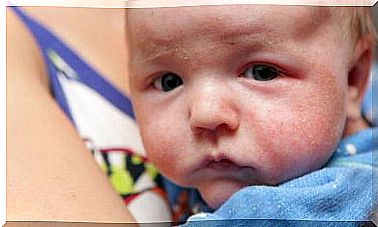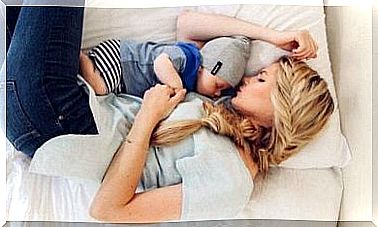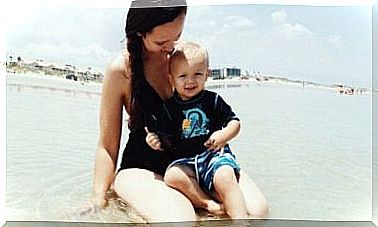Parents And Children – Best Friends?

Today the relationship between parents and children is different than it used to be. Usually it is no longer as authoritarian and strict and the boundaries are no longer as pronounced. Instead, most parent-child relationships are now closer and more informal. Many today see themselves as best friends of their children rather than parents. In addition, many mothers and fathers claim that they can raise their children better as confidants and “buddies”.
The relationship between parents and children today
The relationship that most parents have with their children these days is generally closer. This also applies to the more complicated phase such as puberty. Mothers and fathers today try to have more contact with their children and also to spend more time with them. They also want to know what their offspring are doing and what moves them, what is “in” with them at the moment. In addition, they try to participate in the social life and hobbies of their children in other ways.
Many parents want to develop an equal relationship with their children. Sometimes it is no longer so easy to distinguish: Who is actually setting the rules and limits? And who has the authority? Is it the parents or the children?
Children of previous generations actually asked their parents for permission for anything. Both when it came to going out and when the child wanted to do other things. In contrast, today’s offspring only inform their parents about their plans and intentions. Even the way children talk to their parents has changed. Because today the whole thing happens on an equal level.

Why it is not advisable for parents to be best friends with their children
So we’ve already seen that relationships within the family have naturally changed over time compared to before. However, parents should be careful about having an overly “amicable” parenting style or seeking relationships with their children in which parents and children are ” best friends “.
Social role of “parents”
First, there are certain social roles that have their right to exist. Because they fulfill a certain function in interpersonal relationships. Therefore, one must not lose sight of the fact that there is a role in society which is to be a parent. And parents have the task of exuding a certain authority, as well as establishing clear rules and setting limits. It is clear that this should always be done on the basis of dialogue, trust, respect and love.
Adults as a necessary point of reference
Second, it is virtually impossible for parents to be best friends with their children. Because that would mean maintaining this role in every single phase of life. And that is actually an impossibility.
Because it is precisely the children who sometimes ask for authority. They need adult presence as such. And they also need adults as a point of reference. Because the children need the feeling of security, stability and support. And that’s what they find with their parents. Because they bring the necessary maturity and security due to their experience.
Conclusion: best friends? D rather not
So the answer to the question of whether parents should be their children’s best friends is “ no ”. The Spanish author and psychologist Alicia Banderas also writes the following in her book Pequeños tiranos ( Little Tyrants ): Parents cannot be friends with their children. Your educational mandate is to find a balance between authority and tender care. The author points out that parents need to know how to set limits in good time. This is the only way they can prevent their children from growing up into true tyrants.
Not the same thing: a friendly relationship and best friends
Rather than trying to be their children’s best friends, parents should strive to develop friendly relationships with them without giving up their roles as parents and guardians. However, in order to develop a friendly relationship with your children, parents should keep the following things in mind:
- First of all, it is fundamental to set boundaries. But that should always be done through dialogue and reasonable arguments and discussions. Parents need to be able to say “no” and give their offspring the necessary reasons to do so.

- Parents should also always show their offspring affection, closeness and physical contact. Because even without being the best friends of their children, mother and father can develop a loving and close relationship with them. And this will enable exchange and well-functioning communication.
- Even if it is true that friends are there for certain types of confidentiality, that does not mean that children cannot share their worries, needs, joys and fears with their parents. For this it is important that parents have created a good basis of trust in their children. Because then they have the feeling that they can share their problems with their parents. And they are also able to accept parents’ opinions and advice.
In short, a friendly relationship with your children is …
… a healthy, open, honest, flexible and communicative parent-child relationship. But it is just as important that the relationship must be based on respect for the authority of the parents and the children’s acceptance of justified and mutually agreed limits.
In a friendly relationship, rather than as “best friends”, parents and their children can combine authority and love. And this is essential for children to understand that parents’ decisions and actions are made with the sole intention of doing what is best for the well-being, safety, and happiness of their children.









